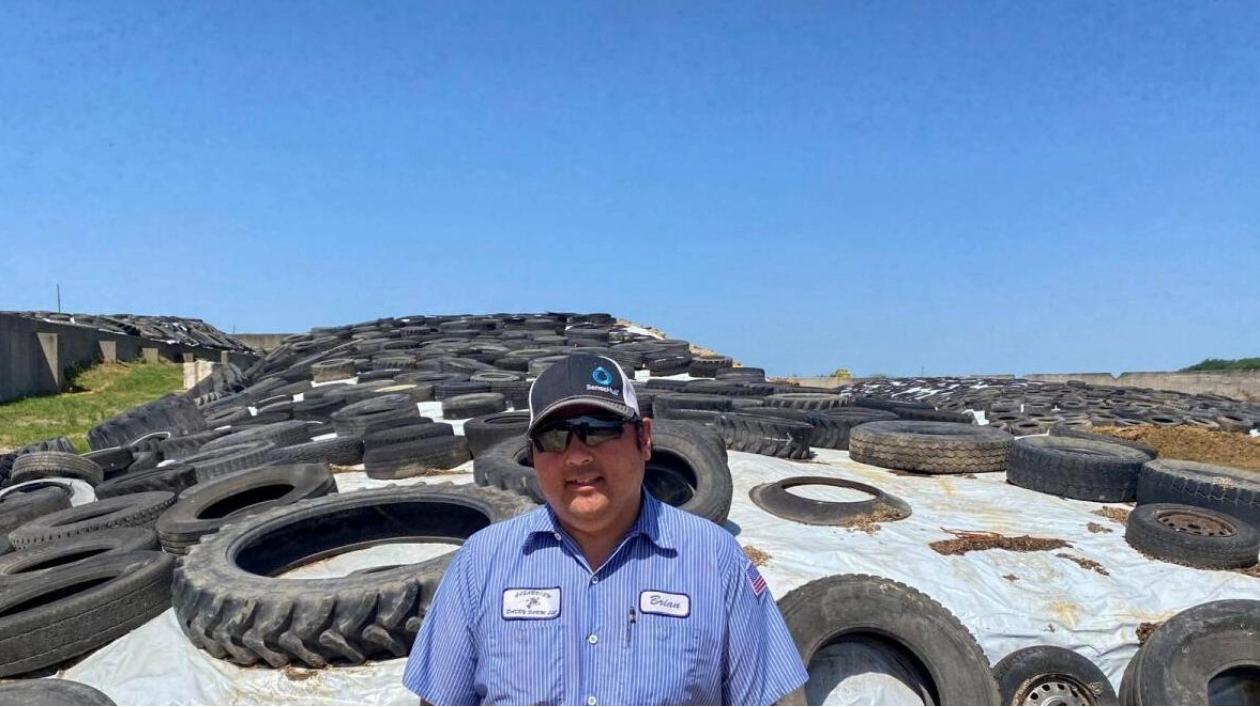Brian DeMann, a dairy farmer from Martin, Michigan, likened the recent outbreak and the state's response to the COVID-19 pandemic. The 37-year-old farmer believes that Michigan's measures to control bird flu would be more palatable if they were presented as suggestions rather than mandates for farmers. "Nobody is certain whether the measures we're being instructed to implement will halt the spread," DeMann remarked, echoing the doubts of other farmers. "Similar to 2020, people were resistant to being dictated what to do."
This spring, many US dairy farmers reportedly ignored federal advice to enhance protective equipment for their staff. DeMann admitted he did not purchase new protective items like masks for his employees due to the unclear nature of the virus's transmission. Michigan's countryside is home to approximately 900 licensed dairy farms, featuring cows in open-air barns and feed piles secured with tarps and old tires.
Tim Boring, Michigan's agriculture director, noted that social stigma and economic worries about infections have deterred farmers from testing their cows for bird flu in the nation's sixth-largest milk producer. "There are multiple factors contributing to the reluctance of farms to disclose positive cases," he explained. "We are aware that this has posed a significant challenge in Michigan."
The state's last reported case of an infected dairy herd was on July 9, marking the 26th positive test. Additionally, five other states have confirmed cases in the past month, and around 140 herds have been infected nationally since March, according to USDA data. Michigan is providing up to $28,000 to incentivize farms with infected herds to join research efforts, with over a dozen farms showing interest.
Independently, the federal government is also offering financial aid. Twelve of the 21 herds enrolled in USDA financial support are from Michigan. To increase testing, USDA initiated a voluntary program allowing US farmers to test milk tanks weekly for bird flu. Currently, six farmers from six states have enrolled one herd each, but none are from Michigan.
Zelmar Rodriguez, a Michigan State University dairy veterinarian researching infections, expressed a desire to see the testing program expanded to every herd. Michigan's agriculture department stated it has up to 200 personnel addressing bird flu cases in poultry and cattle, collaborating with USDA on outbreak investigations. Veterinarians in other states are monitoring Michigan's cases to gauge transmission risks.
Michigan's cow outbreak started after an infected Texas farm transported cattle to Michigan in March before the virus was identified, according to USDA. Weeks later, a Michigan poultry farm also reported symptoms and tested positive. Whole genome sequencing indicated the virus had transferred from the dairy farm to the poultry flock. USDA now believes the virus has spread indirectly through human and vehicle movement on and off infected farms.
Chickens owned by Michigan's largest egg producer, Herbruck's Poultry Ranch, were infected due to the virus spreading from cattle, said Nancy Barr, executive director of Michigan Allied Poultry Industries. Reuters was the first to report the link between Herbruck's and dairy cow transmission. "It's a new threat to us," Barr stated.
Herbruck's informed the state in May that it was laying off around 400 workers after bird flu devastated flocks in Ionia County. The company announced plans to rehire employees as it rebuilds its flocks, a process expected to take six months. By late June, Ionia County poultry farmers had received $73.2 million in indemnity payments from the US government for bird-flu related losses, the highest amount for any county that had to cull infected flocks since February 2022, according to USDA data.
The layoffs in Ionia, a city of about 13,000 in central Michigan, sparked fear among local businesses. Owners reported that unemployed workers had less money to spend during a time when local stores were already struggling against big-box retailers like Walmart and Meijer. "I just thought, 'Oh great, here goes the store,'" said Jennifer Loudenbeck, owner of the Downtown Vintage Resale shop.
Alex Hanulcik, who owns a fresh fruit stand, mentioned knowing a former Herbruck's employee who left town to find work in the southern US after being laid off. "I really feel for the employees," Hanulcik said. "They were blindsided." Herbruck's declined to comment.
Dairy farmers are constantly concerned about their cows potentially becoming infected, yet they are unsure of the best ways to protect them. Doug Chapin, a dairy farmer in Remus, Michigan, held meetings with his staff to discuss the virus's risks. He is attempting to enforce the use of protective eye gear, despite past objections from workers who must clean their glasses if milk splashes on them. "You're constantly thinking about it," he said regarding the virus.
Michigan is planning to test dairy workers for previous infections using pioneering blood tests. The state has already tracked thousands of individuals for bird flu symptoms through an intricate contact tracing system that sends them three daily texts, explained Chad Shaw, health officer for the Ionia County Health Department. However, some farmers remain hesitant to cooperate with local health authorities.
The Branch-Hillsdale-St. Joseph Community Health Agency started contacting farms to offer medical care for seasonal workers due to bird flu cases, said health officer Rebecca Burns. There has been minimal interest, she noted. "These farmers aren't accustomed to us reaching out to them," Burns said.
Michigan has identified the third-highest number of infected dairy herds among all states, following Idaho and Colorado, and lost 6.5 million chickens in April alone from outbreaks on poultry farms, according to USDA data. In late April, the Biden administration mandated that lactating cows test negative before being transported across state lines. Michigan has taken additional steps by requiring farms to maintain visitor logs, disinfect delivery trucks, and implement other safety measures since May. The state has also started requiring negative tests for non-lactating cows to be presented at fairs.
Colorado reported the nation's fourth human case on July 3. The US government awarded $176 million to Moderna to expedite the development of its bird flu vaccine for humans. Twenty-four companies are developing a vaccine for cattle, according to US Agriculture Secretary Tom Vilsack, as approximately 140 herds nationally have tested positive. "Michigan has been at the forefront of providing information and access to information that is truly beneficial," Vilsack said.






